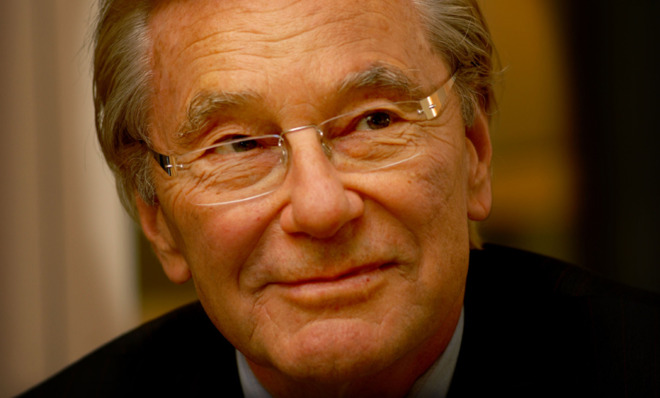The rich don't need extra votes to hold tremendous influence in D.C.
Because the rich already hold tremendous influence in D.C.

A free daily email with the biggest news stories of the day – and the best features from TheWeek.com
You are now subscribed
Your newsletter sign-up was successful
Silicon Valley's Tom Perkins — a venture capitalist last seen comparing grassroots American worries over growing income inequality to Nazi persecution of Jews — recently proposed that we allocate more votes to those who pay more taxes, by which, of course, he means the rich.
Many commentators have been quick to cast Perkins as some sort of lone nut. But his broad antipathy for democracy is not without pedigree. Conservative defenders of the rich have long feared that democracy would upend the economic and political structures that distribute our national income and wealth so unevenly.
In 1787, James Madison, looking toward England, noted, "If elections were open to all classes of people, the property of landed proprietors would be insecure." Accordingly, he argued, the U.S. Senate should be constructed so that landowners would dominate it so "as to protect the minority of the opulent against the majority."
The Week
Escape your echo chamber. Get the facts behind the news, plus analysis from multiple perspectives.

Sign up for The Week's Free Newsletters
From our morning news briefing to a weekly Good News Newsletter, get the best of The Week delivered directly to your inbox.
From our morning news briefing to a weekly Good News Newsletter, get the best of The Week delivered directly to your inbox.
More recently, libertarians have railed against democracy for essentially the same reason: They believe a democratic populace will never support libertarian institutions and the vicious inequalities they generate. Libertarian Hans-Hermann Hoppe even wrote an entire book to this effect in 2001 titled Democracy: The God That Failed.
On its face, fear of democracy is a totally reasonable posture for the super-rich. Income and wealth are doled out by our politically constructed economic institutions. It is easy to imagine that, when given a say, the lower and middle classes will ensure those institutions are egalitarian ones. And, as a historical matter, you have seen this very thing happen, especially in Western and Northern Europe, where working class parties swept through governments, installing the kind of generous social democratic states conservatives in America so loathe.
America is much different. Perkins' and other conservatives' anti-democratic yearnings are rooted in the desire that the rich dominate the American political system. But they don't need a new tax-based voting system for the rich to control the government. The rich already control government.
In their groundbreaking research into the policy preferences of the extremely wealthy, Benjamin Page, Larry Bartels, and Jason Seawright found that the wealthiest citizens have policy preferences that sharply differ in many respects from the majority of the public. For instance, 68 percent of Americans think that the federal government should see to it that anyone who wants to work can find a job, while only 23 percent of the wealthiest Americans do. A whopping 78 percent of Americans believe the minimum wage should be high enough that no full-time worker is in poverty, while only 40 percent of the wealthiest Americans do. Fifty-three percent of the general public think the government should guarantee a job if a person cannot find one in the private sector, but just 8 percent of the extremely wealthy do.
A free daily email with the biggest news stories of the day – and the best features from TheWeek.com
It is not hard to see which view is controlling our government. We are a full six years into an unemployment crisis, and the idea that Congress would pass a jobs program or some other kind of stimulus is so laughable that nobody even bothers advocating it. Meanwhile, the minimum wage hasn't seen an increase in five years and is well below what it would take to ensure no full-time worker would find themselves in poverty.
Most Americans realize that the rich, through their donations and other political participation, have outsized influence over the course our government takes. But few seem to realize just how little influence everyone else has. In Unequal Democracy, Larry Bartels provides a staggering account of the extent to which political influence differs by class. Among other things, he found that political preferences of the bottom third "have no apparent impact on the behavior of their elected officials."
The feudal oligarchy that Tom Perkins apparently pines for is already the country we find ourselves in. The reality of our modern Congress is one in which representatives who are themselves primarily millionaires spend the majority of their time trying to grind campaign donations out of other millionaires. That money comes at a price, and that price is the practical destruction of the very same one-person, one-vote democracy that Perkins wants to get rid of.